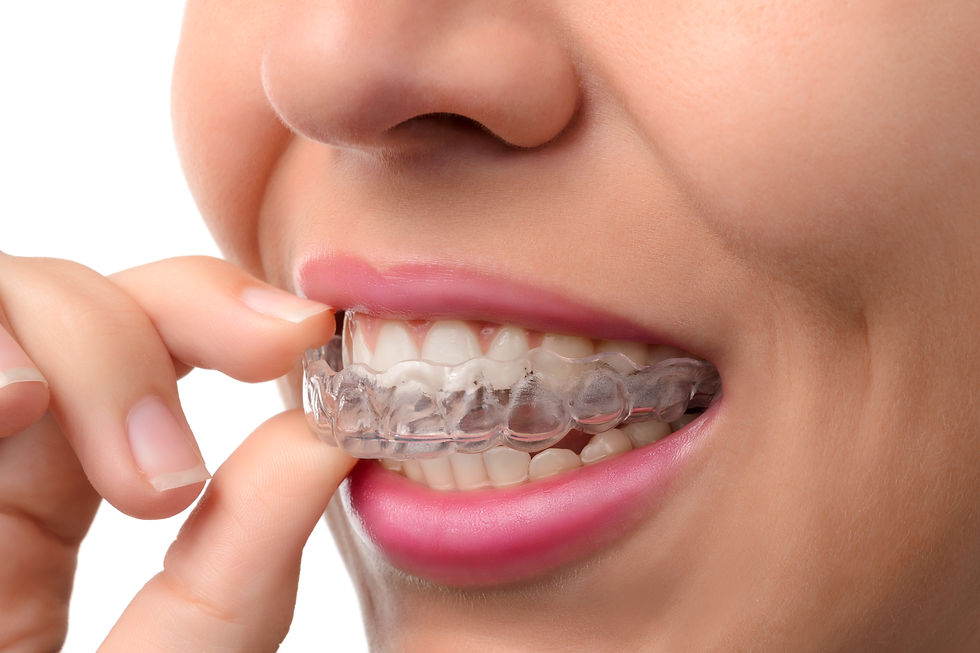Bruxism:What a Pain in the Jaw!
- Dr. Clara Gibson
- Jun 24, 2022
- 2 min read
You may not even realize it, but you might be grinding your teeth at night which can lead to all sorts of health issues. Dr. Clara Gibson from Expat Dental ® explains what you can do about it.

Since the outbreak of the Covid-19 pandemic, dentists worldwide have reported higher incidences of broken and cracked teeth due to the stress and anxiety people have
been experiencing.
“Bruxism” or grinding and clenching of teeth, may happen when asleep or awake. It is a very common dental complaint, with up to 30% of patients reporting being affected. Symptoms can be varied and can be visible both inside and outside the mouth.
The most common reason for patients to seek help is when they begin noticing chips and fractures of their teeth. Your dentist can spot other signs such as tooth wear and soft tissue trauma along your cheeks and tongue. Other symptoms such as headaches, tight muscles and a sore jaw joint or earache may also be clues. Your dentist will do an examination of some of your chewing muscles and may find knots and trigger points, which you might not have noticed before!
Besides stress, patients who have other sleep issues such as sleep apnea may be at more risk. Certain medications or drugs and alcohol may also contribute. The way your teeth bite together may not cause you to clench and grind, but having teeth that are crooked could make you more likely to chip off certain teeth.
With bruxism, teeth may continue to chip, even after your dentist has repaired them and you may notice that the fillings keep breaking. Over time, grinding teeth can wear away the enamel, and even into deeper teeth structures, often causing the need for more invasive treatments such as crowns.
Ideally, we would like to stop the clenching and grinding, but this is not always immediately possible. Often dentists try to reduce the strength of muscle contraction by using a bite guard on your teeth. This is normally worn at night and can limit damage to your teeth by reducing chips and wear, but also helps to prevent the muscles from getting overworked and developing knots. The bite guard also aims to “de-program” the muscles and stop the clenching feedback cycle. Sometimes muscle relaxant injectables such as Botulinum toxin (aka Botox®) are also used on the jaw muscles. In a Singapore first, Expat Dental® has launched a new type of resin to be used with 3D printer technology which allow us to make splints or night mouthguards in-clinic. This means we can get your treatment started even more quickly and provide relief from bruxism, just when you need it, without waiting weeks for a mouthguard or other appliances to be manufactured.

It is important to look for an underlying cause for the clenching. Often, stress in our daily lives manifests as clenching and grinding at night. So, there may be merit to approaching the problem more holistically. Taking a long holiday may not be possible at this time, but bringing stress-reducing activities like yoga and meditation into your daily routine may help reduce stress levels.
Get in touch with us if you would like more information about the different treatments for bruxism. Phone 6497 6718 or email info@expatdental.com.


Comments